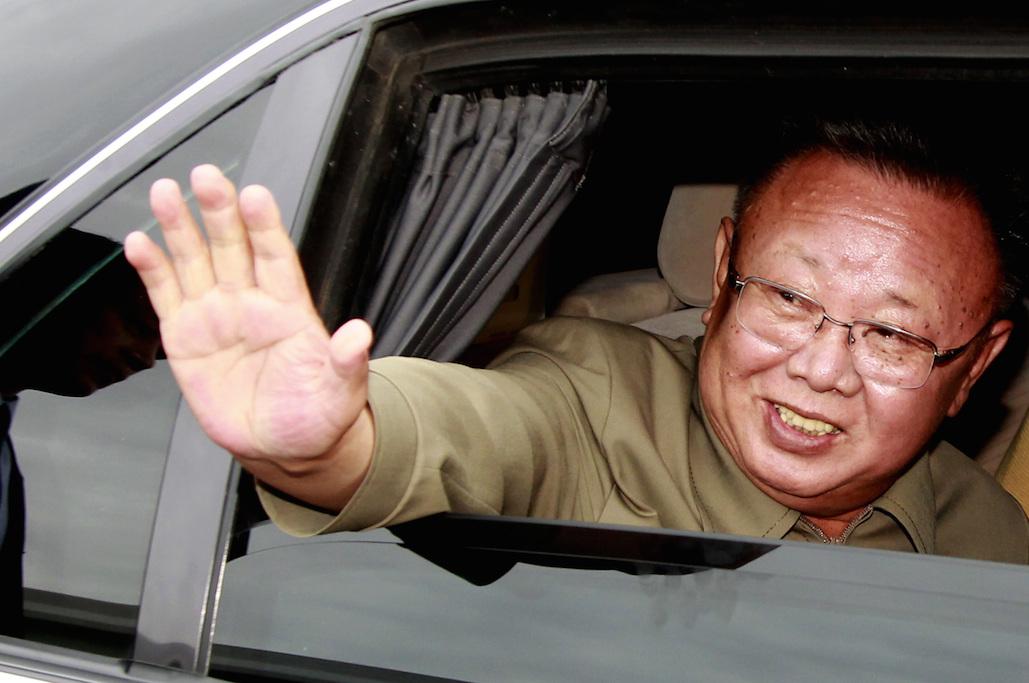Meet Kim Jong Il’s personal poet laureate
A man of letters. Yup, Kim Jong Il had his own poet laureate.
LONDON — As spin-doctoring goes, Jang Jin Sung had one of the world’s hardest jobs. His mandate: breathing beauty into the affairs of a ruthless despot. He was the personal poet laureate to Kim Jong Il, who ruled North Korea until his death in 2011.
Mr. Jang lived large as a member of North Korea’s inner circle. But the job was risky. He defected in 2004, after a minor slip-up left him threatened with execution. He spent a year on the run in China before finding safety in South Korea.
These days he is an outspoken critic of the North Korean regime and of the international community’s efforts to contain the rogue state. He has authored a collection of poetry — this verse about a mother selling her daughter is among his most celebrated. His memoir “Dear Leader” has just been released.
GlobalPost met him in a Thai restaurant in London. He was calm and polite, and seemed like he could handle a crisis. He ordered whiskey on the rocks and stroked his smartphone as an interpreter translated his words into English. The interview has been edited and condensed.
GlobalPost: Jang Jin Sung is not your real name — why did you change it?
Jang Jin Sung: My work is critical of the of the North Korean regime so I have to be anonymous to protect my family.
What was it like to meet Kim Jong Il?
I was not allowed to look above his second shirt button, I had to rub my hands with sanitizing gel before shaking his hand and I couldn’t move without permission.
Are the North Koreans poetry fans? What kind of stuff do they like?
Learning poetry is part of the culture but you are forced to do it and the only topic is about how wonderful the leader is. The idea of liking it or not is redundant.
I know you are a fan of Lord Byron. How did you access his work?
In North Korea there is something called “The 100 Copy Collection” where classic works are available to elite families so they can understand something of the outside world. There are only 100 copies of each book — hence the name. My family had a copy of Lord Byron’s works and they inspired me to be a writer.
How did you feel about having the themes of your poetry dictated to you?
It was incredibly frustrating. Writing became like a job. The best assignment was to write about the past because then I had the freedom to insult some other king or country whereas everything else had to be in praise to the leader.
What made you start writing poetry that criticized the regime?
I needed to write the truth to keep myself sane. It was driving me crazy to keep denying reality and it was a relief to write what I wanted even if no one would ever read it. After I finished my first free poem I wept with happiness. I was ecstatic that I was able to write something that wasn’t ordered from above.
What made you leave?
Writers are employed by the Psychological Warfare and Counter Intelligence Department and as part of my job I had access to outside literature. I lent a South Korean magazine to a friend and he left it on a Pyongyang subway train. To leave a South Korean magazine in public is unbelievable blasphemy and they would have executed me and sent my family to a prison camp. So I had to run away. I haven’t heard from my family since.
You have said that the only hope for change in North Korea is from the nascent market economy — do you really hold no hope for dialogue?
No, because the only people you can have a dialogue with are the people who want to maintain the status quo. Why would they change anything? They would lose their wealth and position. Dialogue would only work if you pressure them on human rights issues, for example.
How would a human rights-based dialogue be more effective then?
Security-based talks are not effective because you can’t make North Korea get rid of their nuclear weapons. If you pressure them on human rights then they might compromise on real things like control and the prison camps. Security issues are just a back-and-forth that makes little difference to the people on the ground.
Would North Korea ever deploy their nuclear weapons?
The regime’s last card is not nuclear war, their last card is to open up and reform because then the leadership can escape with their lives. This is not an ideological regime; this is a pragmatic money-based regime. Why would the leadership commit suicide by starting a nuclear war when they could go into exile with loads of money?
What effect does freedom and democracy have on the human spirit?
The human spirit doesn’t exist in North Korea because a free democracy is a prerequisite for its existence.
What are your plans for the future?
I want to do all I can to speak on behalf on the North Korean people and give them their voice back.
The story you just read is accessible and free to all because thousands of listeners and readers contribute to our nonprofit newsroom. We go deep to bring you the human-centered international reporting that you know you can trust. To do this work and to do it well, we rely on the support of our listeners. If you appreciated our coverage this year, if there was a story that made you pause or a song that moved you, would you consider making a gift to sustain our work through 2024 and beyond?
